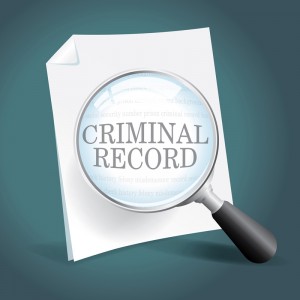 New Jersey Governor, Chris Christie, signed a bill that will make it easier for individuals to seek expungement of their criminal records. The new law shortens the waiting periods and makes various changes to the procedures and requirements. Around mid-April anyone convicted of a crime in New Jersey will find it significantly less difficult to clear their criminal history.
New Jersey Governor, Chris Christie, signed a bill that will make it easier for individuals to seek expungement of their criminal records. The new law shortens the waiting periods and makes various changes to the procedures and requirements. Around mid-April anyone convicted of a crime in New Jersey will find it significantly less difficult to clear their criminal history.
One of the bill’s co-sponsors, L. Grace Spencer, pointed out the importance of this new legislation. She said a person with a criminal record might find it more challenging, “to secure housing, employment, and even loans for schools. These obstacles make is nearly impossible for these individuals to successfully reintegrate back into society”.
What is an Expungement?
If you’ve had a run in with the law, you know how dreadful the question: “Have you ever been arrested or convicted of a crime,” can be. The expungement process is a way to remove a record so when asked that question you can legally answer “NO!” This will help when seeking/trying to maintain employment, getting a loan/mortgage, renting an apartment, adopting children, trying to get a gun permit, clearing your family name, and countless other issues.
Once completed, it will “extract and isolate” your past records from most public viewing. An expungement does not destroy your criminal history, but once granted by the Court, your offense “…shall be deemed not to have occurred.” Anyone doing a background check through New Jersey State Police or through the FBI will receive a response that there is “no record” except in very limited cases.
What’s Changed?
Under previous New Jersey law, there was a lengthy waiting period before you could apply to expunge your criminal history. The time period runs from the date that the judge imposes sentence, the date you pay all of your fines, the date you successfully complete parole or probation, or the date you complete your sentence, whichever comes last.
A person convicted of an indictable offense in New Jersey was required to wait a minimum of ten years before filing for an expungement. Under the new law, those individuals will only have to wait five years before petitioning to the court to request clearing their records of these serious offenses.
The waiting period for expunging a disorderly persons offense or petty disorderly persons offense has been reduced from fives years to three years. Although these “misdemeanor-level” offenses are not as serious as felonies, a conviction for theft or drug offenses can carry a stigma that will haunt you for a very long time.
Don’t let a past mistake continue to hold you back. Call me now for a free consultation at (973) 686-9787

 (973) 686-9787
(973) 686-9787 Totowa, NJ 07512
Totowa, NJ 07512 Menu
Menu





